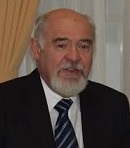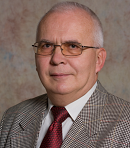
Plenary Lecture
Robust Solution - What does it mean and why should we deal with it?


Professors Imre Rudas & Péter Odry
Óbuda University
Hungary
E-mail: rudas@uni-obuda.hu
Abstract: In the implementation phase of a task, we expect it to be as reliable and safe as possible with the best possible parameters, regardless of operating conditions; for example, if we build a structure, or write a software, or simply want to get from one point to another in a big city for a given time, etc. Operation under these conditions is called robust operation. Finding a robust solution is one of the key strategic issues in today's accelerated world. There is no time today to develop a tool, to build it and test it and then modify it, then apply this cycle several times in every possible load environment, but we are looking for mathematical methods to solve this optimization process in a simulation environment. The winning strategy is not simply about the selection of the optimization method, but also about the definition of the adequate quality (fitness), the robustness of the resulting optimum or sensitivity analysis, and the uncertainty analysis of several parameters. Modern engineering problems are often composed by objectives that must be taken into account simultaneously for better design performance. Normally, these objectives are conflicting, i.e., an improvement in one of them does not lead, necessarily, to better results for the other ones. To overcome this difficulty, many methods to solve multi-objective optimization problems (MOP) have been proposed. The simulation model includes environmental or mission parameters that are not part of the parameters to be optimized but their variation creates different scenarios. A multi-scenario simulation can be created with the typical values of these parameters where the optimum is searched for all scenarios at the same time. Such optimum is more robust than one achieved through a process using separate scenarios since the intended use of the robot is represented by the multi-scenarios. A common goal for system design is robustness: the ability of a system to operate correctly in various conditions and fail gracefully in an unexpected situation. We developed the Szabad(ka)-II hexapod walker robot driven by three motors per leg. This robot is expressly suitable for testing the robustness of the dynamic system. During the design process, we tried to minimize the complexity of the mechanical structure with the aim of reduce the unwieldy appearance.
Brief Biography of the Speaker: Imre J. Rudas: Graduated from Bánki Donát Polytechnic, Budapest in 1971, received the Master Degree in Mathematics from the Eötvös Loránd University, Budapest, the Ph.D. in Robotics from the Hungarian Academy of Sciences in 1987, while the Doctor of Science degree from the Hungarian Academy of Sciences in 2004. He received Doctor Honoris Causa degree from the Technical University of Košice, Slovakia, from “Polytechnica” University of Timisoara, Romania, from Óbuda University, and from Slovak University of Technology in Bratislava. He was awarded by the Honorary Professor title and Ambassador of Wroclaw University of Technology in 2013 and 2016, respectively. He is Professor Emeritus of Óbuda University. . He served as the President of Budapest Tech from 2003 till 2010. He was the founder of Óbuda University, the successor of Budapest Tec and was elected as the first President in the period 2010-2014. He served as the President of the Hungarian Rector’s Conference and member of European University Association in 2008. He is a Fellow of IEEE, Senior AdCom member of Industrial Electronics Society (IES), he is the President-Elect of IEEE System, Man and Cybernetics Society He is the Senior Past Chair of IEEE Hungary Section. He served IFSA (International Fuzzy System Association) as Vice-President and Treasurer for a period of 7 years; he had been the President of Hungarian Fuzzy Association for ten years. He had been the Vice-President of the Hungarian Academy of Engineers for four years. He serves as an associate editor of some scientific journals, including IEEE Transactions on Industrial Electronics, member of editorial board of Journal of Advanced Computational Intelligence, Editor-in-Chief of Acta Polytechnica Hungarica, member of various national and international scientific committees. He is the founder of several IEEE sponsored conferences and Symposia. His present areas of research activities are Computational Cybernetics, Robotics, Cloud Robotics, Internet of Anything, Soft Computing, Fuzzy Control and Fuzzy Sets. He has edited and/or published 22 three books, published more than 850 papers in international scientific journals, conference proceedings and book chapters, and received more than 5000 citations.
Peter Odry: Received his MSc degree in electrical engineering and his PhD degree in telecommunication from the University of Belgrade in 1979 and 1992, respectively. He is a Professor of Subotica Tech College of Applied Sciences. His present research activities are related to robot building and control, soft computing methods, intelligent image processing, tomography techniques and impedance spectroscopy. He serves as an editor for both the Infocommunications Journal and Acta Polytechnica Hungarica and also member of various national and international scientific committees. Dr. Odry has published more than 120 papers in various journals and international conference proceedings, he received more than 400 citations.